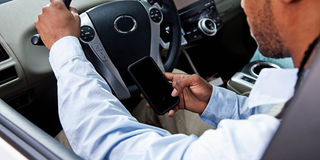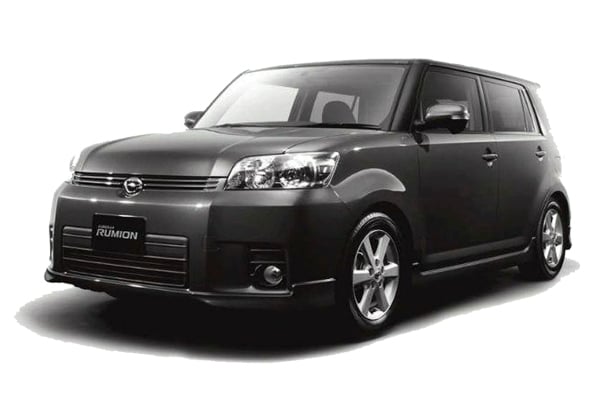Driving habits to leave in 2021

To avoid temptation, switch off your phone before starting a journey. PHOTO/www.gettyimages.com
What you need to know:
Some of these habits can actually harm you and your car, while others go against basic road sense and etiquette. In the New Year, let us bid adieu to some of these bad driving habits.
The 2018 World Health Organisation (WHO) Global Status Report on Road Safety indicates that road crashes now kill more people than HIV/Aids, tuberculosis and diarrhoeal diseases.
While there has been more progress in reducing the number of road traffic deaths among middle and high income countries than low income countries, the report says there has been no reduction in the number of road traffic deaths in any low income country, where Uganda falls, since 2013 yet these countries have only one percent of the world’s vehicles.
Rogers Kawuma Nsereko, the Kampala Metropolitan (KMP) Traffic Commander, argues that most road crashes could be avoided if drivers were patient on the road.
“What causes confusion on the road is a driver’s indiscipline. Everyone is selfish on the road. Learn to be accommodative of other people on the road without thinking you are more important or in more of a hurry than others. The negligence of rushing causes unnecessary accidents,” Nsereko says.
Distracted driving
Distracted driving involves using anything that takes your attention and concentration away from the road. It could be texting while driving or making phone calls. Ronnie Kyazze, the head of programmes at Towards Zero East Africa (TZEA) says using your phone while driving means your mind is divided between the road and the conversation you are having on phone. By the time you remember to get off the phone, you will have knocked a pedestrian or another vehicle.
Speeding
With advent of faster cars and better roads, motorists get excited with speed. Unfortunately, the increase in speed leads to an increase in the chances of killing someone or ramming into another vehicle.
“Obey speed limits where they apply. The speed at which you drive will be the same speed at which your body will be ejected from your car in case of a head-on collision,” Kyazze warns.
What is also important to note is that the maximum driving speed in urban areas was revised from 50km/hour to 30km/hour to reduce road crash deaths in builtup areas with busy population.
Lack of respect
Sharing the available road space and respecting every road user regardless of whether they are a pedestrian or passenger on a motorcycle is one of the ways of showing courteousness on the road.
“Bullying other road users by pushing them off the road into a trench is disrespect to other road users. Treat others the way you want to be treated because you are also a pedestrian at one point when out of your car,” Kyazze says.
Creating illegal lanes
Creating illegal lanes happens mostly during rush hours in the morning and evening. This only causes traffic jam that could have been avoided if you stayed in your lane.
“The challenge comes when motorists in illegal lanes want to rejoin their initial lanes and end up inconveniencing those that stayed in their lanes. The outcome will be traffic jam. If you all stayed in your lanes, there would be no jam,” says Robert Agaba, a motorist.
Road impunity
The illegal use of sirens and lead cars on both private and government vehicles, including those without right of way has become the order of the day on most roads. Some of these have knocked other road user’s vehicles and got away with it. There are also reckless motorists who drive on road shoulders and on the opposite road direction. There are also motorists in trucks or raised vehicles who bully those in smaller ones, as well as those that drive past red traffic lights.
“If you know someone does not have the right of way, stand your ground and remain in your lane. Do not give chance to private known or unknown motorists without right of way to bulldoze you off the road. In a small way, you will be fighting road indiscipline. If anything happens, there will be evidence to hold the offender accountable,” Nsereko advises.
Penalties for traffic offences
Eron Kiiza, an advocate, says there are penalties, including fines, for all traffic offences. Under civil law, an offender is pursued by the family of the offender to compensate the victim. The damage caused is measured, for instance, by valuing the life the victim had ahead of them.
Kiiza explains that depending on the court the family of the victim goes to, and the circumstances and attitude of the judge towards how much to compensate the victim or their family, the awards are normally not uniform because damage could at times be permanent or temporary disability.
“It could be based on how much the person was projected to earn in their life. In the high court, it could be higher than Shs50m and if it is a lower court, the awards could be lower,” Kiiza explains.




